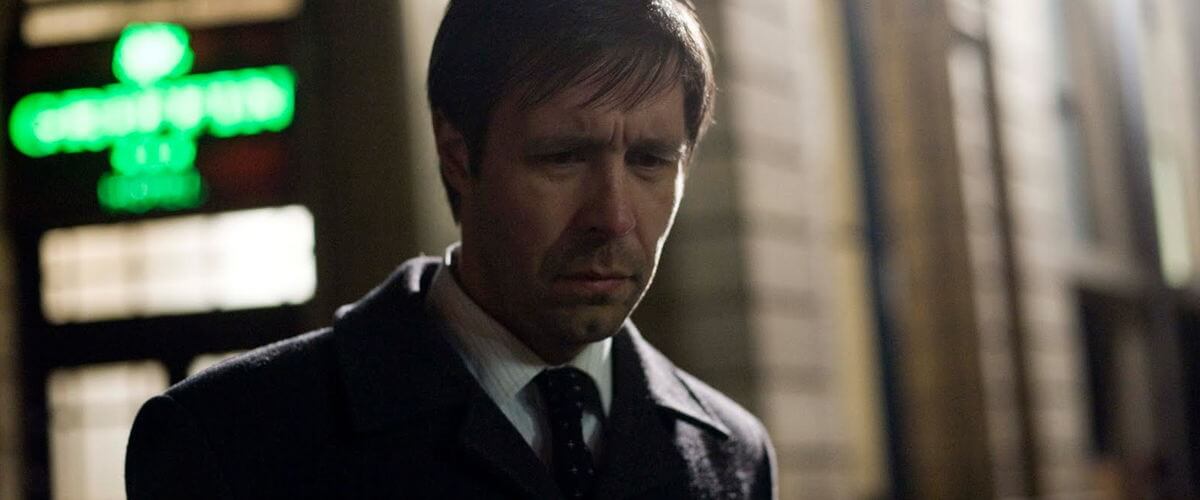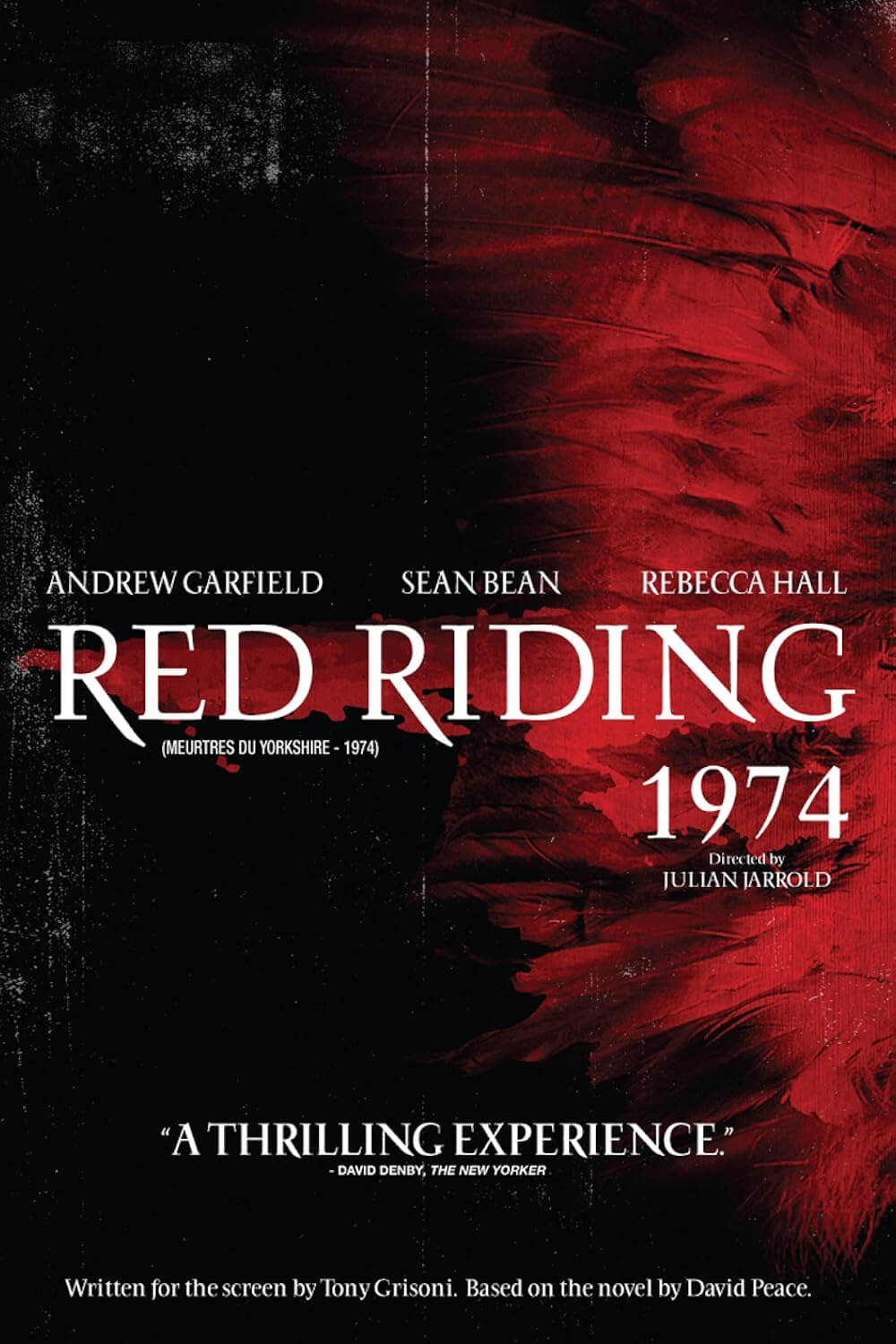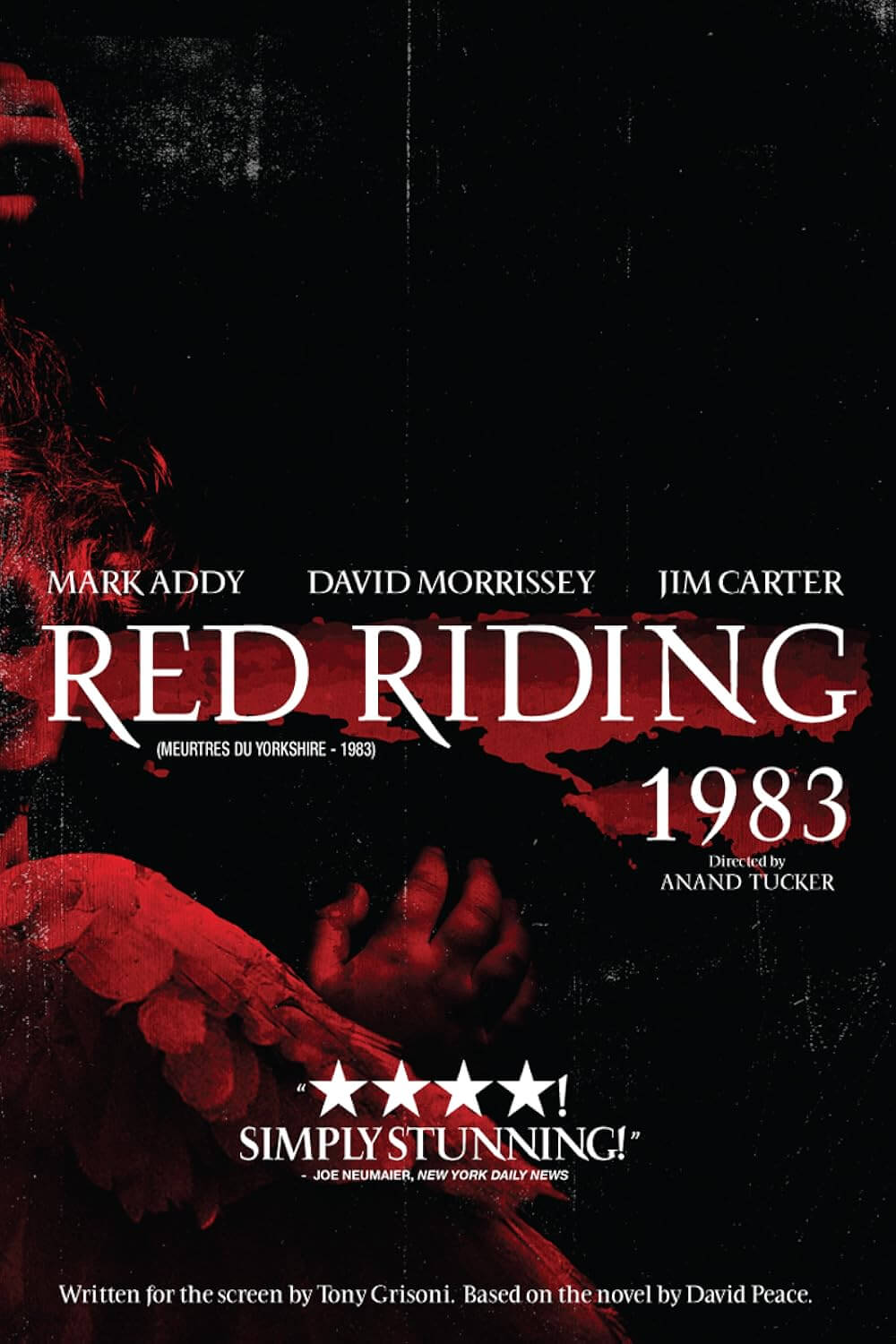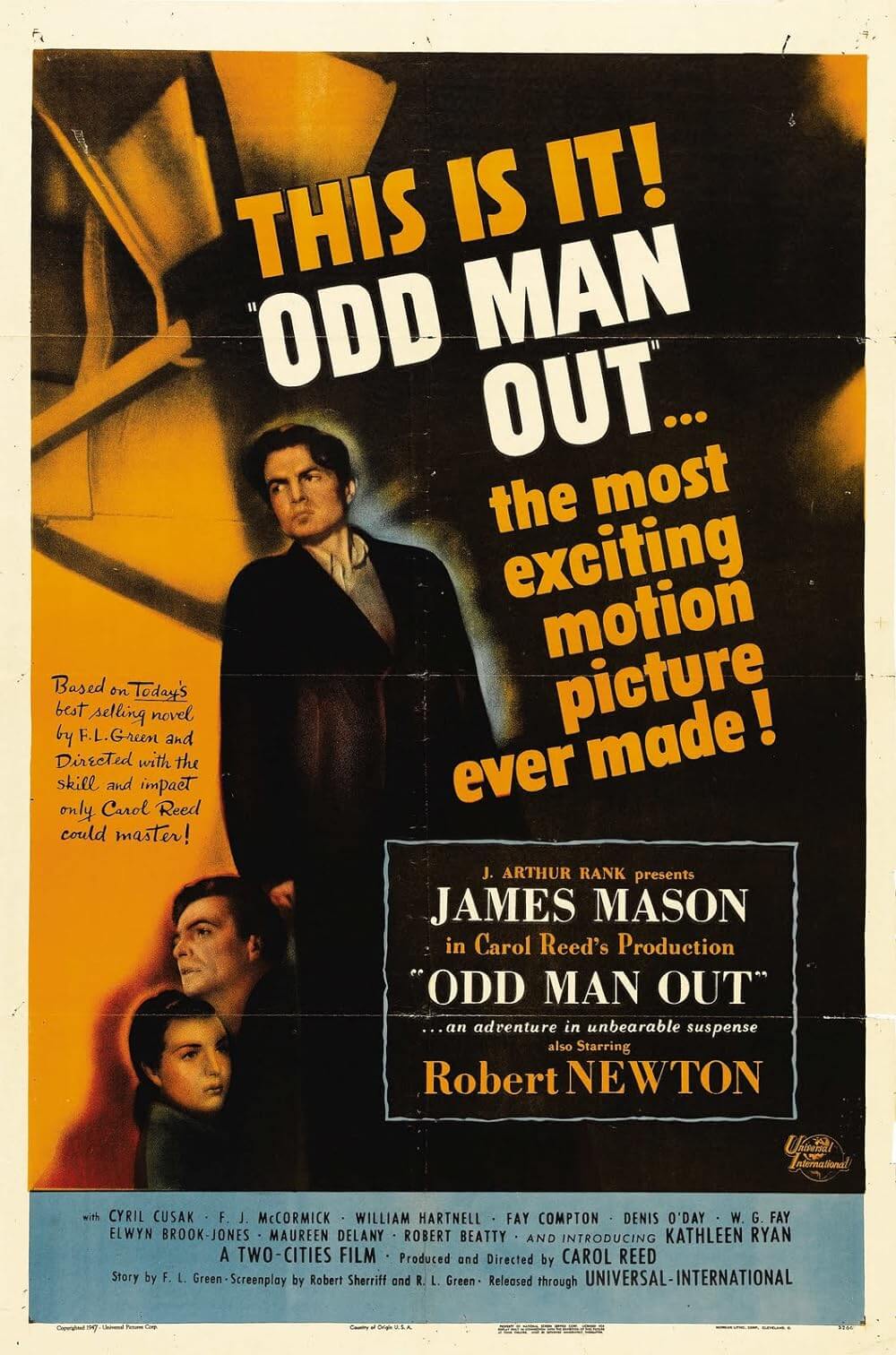
Red Riding: 1980
By Brian Eggert |
Positioned like sentries haunting northern England’s countryside, the cooling towers of a nuclear power plant stand over Yorkshire and exact their absolute authority. They infer the mass contaminant fanning out over the quiet country, which is not so much an environmental pollutant, but rather the corruption of the Yorkshire police force. Going deeper than we can guess at this point, the police in the territory answer to no one, and control everyone. The leaders of this power join together and toast their motto, “The north—where we do what we want.” How frighteningly simple that men stand together and declare their intention to do bad.
The second film in the Red Riding trilogy, titled Red Riding: 1980, draws from two of the quartet of novels by David Peace. Originally, four episodes were planned to air on the UK’s Channel 4 to match the author’s four books, but budget constraints forced Red Riding: 1977 out, leaving sections of that story to be absorbed by this film. The episodes feel like full-length features, not part of a miniseries, to a degree because of how seriously the filmmakers made their pictures. Director James Marsh (Man on Wire) used 35mm film stock and permeates the tone of a noirish cop drama. But then, the British take their television seriously, don’t they? Why else would the U.S. market keep importing their made-for-TV BBC and Channel 4 programming for our theaters and home viewing?
Though highly fictionalized, the story follows the search for the real-life Yorkshire Ripper, who, when the film begins, has presumably slain 13 women. Local police have come up empty-handed, so The Powers That Be places Peter Hunter (Paddy Considine), a squeaky-clean detective from Manchester, in charge of the investigation. He’s joined on a covert team by hand-picked colleagues: the competent John Nolan (Tony Pitts) and a female detective with whom he’s had an affair, Helen Marshall (Maxine Peake). Of course, the Yorkshire police take offense that their own investigation is being undermined, so the men assigned to cooperate with Hunter do not, namely the group’s liaison, Bob Craven (Sean Harris).
But, like Red Riding: 1974, the story quickly becomes less about the killer and instead inhabits the crooked nature of the police behind the investigation. Hunter, who did not appear onscreen in the preceding entry, has a connection to the earlier story, having investigated the death of the first film’s protagonist, reporter Eddie Dunford. And like Dunford, his findings in the case at hand pull him further into the town’s secret underbelly. Hunter exposes a massive cover-up that he’s unable to fully penetrate, and soon enough it overtakes him. Here is where the film works best, creating suspense around a hero who cannot possibly imagine how deeply engrained his investigation should actually go.
Characters from the first film appear once more on the periphery here, adding to the substance of conspiracy at work in every scene. Police types like Maurice Jobson (David Morrissey) and Harold Angus (Jim Carter), as well as more crucial players from later on, like the religious man Martin Laws (Peter Mullan), offer familiar faces but hardly get their due until the final chapter. What takes place in this second film feels like it builds very little on the first, which singles it out as the weakest entry of the trilogy. With its lone cop uncovering corruption and “hunting” the killer, while also managing a broken home life, the sometimes cliché result feels standardized in comparison to what comes before and after it. The scenes that really send a chill down the spine are those brief moments where corrupt men toast to their own decadence and depravity.
And yet, Considine, an established actor from titles like In America and The Bourne Ultimatum, proves a more effective leading man than the first film’s Andrew Garfield was. His presence onscreen is that of a straightforward actor, which pairs nicely with this fairly uncomplicated story. Or perhaps it’s uncomplicated only in comparison to the first and third films in the trilogy, which contain admittedly dense and winding (and occasionally impenetrable) plotlines. But then, their opaque stories are also what makes them so atypical and therefore more engaging. Considine helps to keep this middle episode going, even when the standardization of the story threatens to render the film a typical cop drama.
Made with considerable skill by Marsh, Red Riding: 1980 is the most simplistic in the trilogy narratively speaking, yet it still demands our attention throughout because of a lingering investment from the first film. Once again, no answers are given concerning the chief players of the ongoing corruption, but a tight little scenario rooted in suspense plays out at the center. The presentation, dark and ominous throughout, becomes a cop thriller with a common enough thread and visual style to deserve comparison to the likes of post-Se7en serial killer movies. And the film is undeniably effective at making the last in the trilogy a must-see.
Unlock More from Deep Focus Review
To keep Deep Focus Review independent, I rely on the generous support of readers like you. By joining our Patreon community or making a one-time donation, you’ll help cover site maintenance and research materials so I can focus on creating more movie reviews and critical analysis. Patrons receive early access to reviews and essays, plus a closer connection to a community of fellow film lovers. If you value my work, please consider supporting DFR on Patreon or show your support in other ways.
Thank you for your readership!
Brian Eggert | Critic, Founder
Deep Focus Review







